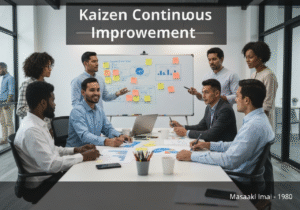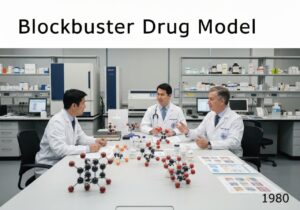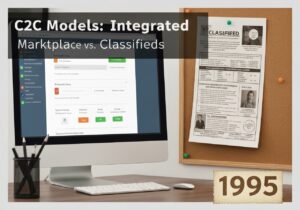A marketing approach that uses the principles of agile software development to improve the speed, predictability, transparency, and adaptability of marketing functions.
- Methodologies: Engineering, Quality
Agile Marketing

Agile Marketing
- Agile Methodology, Agile Product Development, Continuous Improvement, Cross-Functional Collaboration, Customer Experience, Design Sprint, Iterative Development, Marketing Strategy, Project Management
Objective:
How it’s used:
- Agile marketing teams work in short cycles called sprints to complete small, incremental projects. This allows them to respond quickly to feedback and changing market conditions.
Pros
- Increases marketing effectiveness, improves team collaboration, and allows for rapid adaptation to market changes.
Cons
- Can be challenging to implement in traditional marketing departments, requires a cultural shift towards collaboration and experimentation, and may not be suitable for all marketing activities.
Categories:
- Customers & Marketing, Project Management
Best for:
- Managing complex marketing projects in a fast-paced and dynamic environment.
Agile marketing is particularly effective in industries where speed and adaptability are paramount, such as technology, e-commerce, and consumer goods. Within these sectors, teams often initiate Agile marketing methodology during the project planning phase, where the need for rapid experimentation and iteration becomes evident. Participants typically include cross-functional members such as content creators, data analysts, product managers, and SEO specialists, all collaborating to ensure that each sprint produces actionable results. This approach allows teams to conduct A/B testing for marketing strategies, facilitating the rapid testing of various campaign elements and the immediate incorporation of feedback to refine messaging and visual content in real-time. For instance, a tech company launching a new software platform might employ Agile marketing to iteratively test different user engagement campaigns across social media and email channels, adjusting tactics based on user interaction data collected after each sprint. The methodology enhances transparency and accountability within teams, as everyone can track progress and outcomes against set objectives, leading to enhanced morale and fostering a culture of continuous improvement. Furthermore, the ability to pivot quickly in response to market trends or competitor moves can be a significant advantage, helping organizations maintain relevance and capitalize on emerging opportunities, while ensuring marketing investments yield optimal returns.
Key steps of this methodology
- Define the sprint goal to address specific marketing challenges.
- Create a prioritized backlog of tasks that align with the sprint goal.
- Select tasks from the backlog based on team capacity and sprint duration.
- Conduct daily stand-up meetings to discuss progress and obstacles.
- Execute the tasks, collaboratively developing and refining marketing materials.
- Gather feedback from stakeholders throughout the sprint.
- Conduct a sprint review to showcase completed work and collect further input.
- Hold a sprint retrospective to identify process improvements for future sprints.
Pro Tips
- Implement a feedback loop that allows stakeholders to regularly assess project outcomes and pivot strategies based on data-driven insights.
- Utilize retrospective meetings after each sprint to evaluate team performance and identify areas for continuous improvement, enhancing future project cycles.
- Incorporate cross-functional teams to leverage diverse expertise and perspectives, fostering innovation and adaptability during rapid project iterations.
To read and compare several methodologies, we recommend the
> Extensive Methodologies Repository <
together with the 400+ other methodologies.
Your comments on this methodology or additional info are welcome on the comment section below ↓ , so as any engineering-related ideas or links.
Historical Context
1960
1980
1983
1990
1995
2000
2010
1950
1980
1980
1986
1994
1995
2000
(if date is unknown or not relevant, e.g. "fluid mechanics", a rounded estimation of its notable emergence is provided)














Related Posts
Monte Carlo Simulation
Model-Based Testing
Model Checking
Mixed Methods Research
Mistake Proofing (Poka-Yoke)
Mission Profile Testing